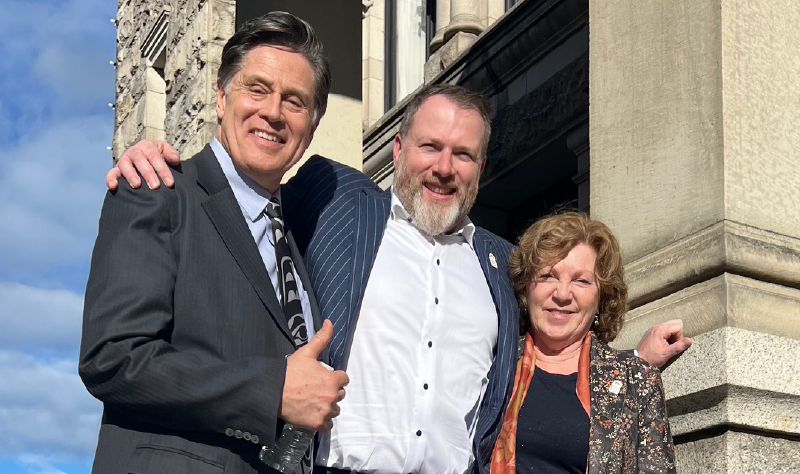This coverage is from the CBC British Columbia and the original article can be found here.
With files from Daybreak North
September 15, 2022
Communities across northwest B.C. are one step closer to a new revenue-sharing agreement after a memorandum of understanding (MOU) was signed between the Northwest B.C. Resource Benefits Alliance (RBA) and the province on Wednesday.
The RBA, made up of 21 local governments from Masset to Vanderhoof, has been calling on B.C. since 2014 to help strengthen northwestern and rural communities by sharing the revenue from major projects with local communities.
A memorandum of understanding was signed between the RBA and the province to work together to assess the impact of current and new industrial developments in the region.
Under the MOU, a working group of staff from the Ministry of Municipal Affairs, the Ministry of Finance and RBA members will assess communities’ financial needs and identify projects that need funding.
“If successful, this agreement would be a revenue sharing deal with the province that could see millions a year for Prince Rupert and other northwest communities,” Prince Rupert Mayor Lee Brain wrote on Facebook.
Most projects that generate economic activity in the northwest are outside municipal boundaries, which means local governments receive little revenue.
“By signing this MOU agreement, our government is committed to listening to rural and northern voices, and we will work collaboratively to meet the needs of people in this beautiful region,” Municipal Affairs Minister Nathan Cullen said in a statement.
Sean Bujtas, recently acclaimed as Terrace’s mayor, says he’s excited to be working with the province, but a lot of work still needs to be done. He says his city is in “dire” need of support to help maintain the community’s current infrastructure.
“We’re a community that can’t afford things like bike lanes, and we can’t afford to pay for most of our roads that are falling apart,” Bujtas said on CBC’s Daybreak North on Friday.
“It would be nice to put a little bit of energy into our downtown core as well and revitalize that, but that’s something we can’t afford at this time.”
He said in the last four years, the city has increased taxes by 17 per cent for residents and commercial business owners, and it’s not sustainable to continue to ask them to pay more.
“Do we hit a point where we start letting roads become gravel roads again because we just can’t afford to pay them?” he said, “because that may be a place where we’re at one day.”


